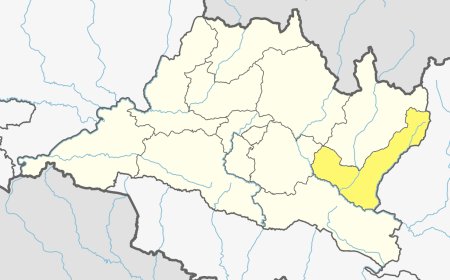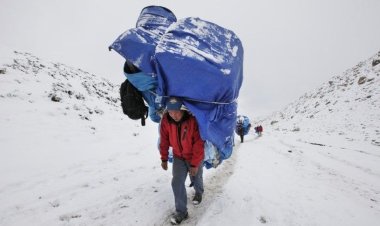Market Research of Nepal: Understanding the Nepalese Market Landscape
Explore the Nepalese market landscape with our comprehensive market research report. Gain insights into consumer behavior, economic trends, and market trends in Nepal.

Nepal is a rapidly developing nation with a growing economy, offering ample opportunities for businesses looking to expand their operations. Market research is a crucial step in understanding the Nepalese market landscape, consumer preferences, and market trends. In this article, we will explore the various aspects of market research in Nepal, including the importance of market research, key industries in Nepal, consumer demographics and buying behaviors, market trends, and challenges faced by businesses in the Nepalese market.
Introduction to Market Research in Nepal
Market research is the process of gathering, analyzing, and interpreting information about the market to make informed business decisions. In the context of Nepal, market research can provide valuable insights into the needs and preferences of Nepalese consumers, helping businesses understand the opportunities and challenges present in the Nepalese market.
Key Industries in Nepal
Some key industries in Nepal are:
-
Agriculture:
Agriculture is the largest sector in the Nepalese economy and includes crops such as rice, wheat, maize, and vegetables. -
Tourism:
Nepal is known for its natural beauty and rich cultural heritage, making tourism a significant contributor to the country's economy. -
Manufacturing:
The manufacturing sector in Nepal includes industries such as textiles, food processing, and handicrafts.
Understanding the key industries in Nepal is crucial for businesses looking to enter the market or expand their operations. It helps in identifying potential areas for growth and investment, and understanding the market demands and competition.
Consumer Demographics and Buying Behaviors
The market trends in Nepal are rapidly evolving and include the following:
-
Digital Transformation:
The use of technology and digital tools is increasing in Nepal, leading to a shift towards e-commerce and digital banking. -
Growing Middle Class:
The middle class in Nepal is growing, leading to an increase in disposable income and a growing demand for luxury goods and services. -
Agricultural Modernization:
Agriculture is a major sector in Nepal, and the government is actively promoting the modernization of this sector, including the use of modern technologies. -
Infrastructure Development:
The Nepalese government is investing in infrastructure development, including transportation, power generation, and telecommunications, which is driving economic growth and creating new business opportunities. -
Tourism Growth:
Nepal is a popular tourist destination, and the tourism industry is growing, particularly in eco-tourism and adventure tourism. -
Foreign Investment:
The Nepalese government is actively promoting foreign investment in the country, and several foreign companies have established operations in Nepal in recent years.
Overall, the market trends in Nepal indicate a growing economy and an increasing demand for modern goods and services. Companies that are able to keep pace with these trends are likely to succeed in the Nepalese market.
Market Trends in Nepal
The market trends in Nepal are rapidly evolving and include the following:
-
Digital Transformation:
The use of technology and digital tools is increasing in Nepal, leading to a shift towards e-commerce and digital banking. -
Growing Middle Class:
The middle class in Nepal is growing, leading to an increase in disposable income and a growing demand for luxury goods and services. -
Agricultural Modernization:
Agriculture is a major sector in Nepal, and the government is actively promoting the modernization of this sector, including the use of modern technologies. -
Infrastructure Development:
The Nepalese government is investing in infrastructure development, including transportation, power generation, and telecommunications, which is driving economic growth and creating new business opportunities. -
Tourism Growth:
Nepal is a popular tourist destination, and the tourism industry is growing, particularly in eco-tourism and adventure tourism. -
Foreign Investment:
The Nepalese government is actively promoting foreign investment in the country, and several foreign companies have established operations in Nepal in recent years.
Overall, the market trends in Nepal indicate a growing economy and an increasing demand for modern goods and services. Companies that are able to keep pace with these trends are likely to succeed in the Nepalese market.
Competition in the Nepalese Market
The competition in the Nepalese market is relatively intense, with both domestic and foreign companies competing for market share.
Domestic companies have a significant advantage in terms of local knowledge and customer relationships, but face challenges in terms of technology and marketing. Foreign companies, on the other hand, often have access to better technology and marketing resources, but may struggle to adapt to the unique cultural and economic environment of Nepal.
In terms of specific industries, the Nepalese market is characterized by a mix of highly competitive sectors, such as consumer goods and services, and more monopolistic sectors, such as utilities and infrastructure.
Overall, companies that are able to differentiate themselves in terms of product quality, price, and customer service are likely to be successful in the Nepalese market. Additionally, companies that are able to adapt to the unique cultural and economic environment of Nepal are likely to be better positioned to succeed in this market.
Challenges faced by Businesses in Nepal
Businesses operating in Nepal face a number of challenges, including:
-
Infrastructure:
Nepal has limited infrastructure, including poor roads, limited access to electricity and water, and limited telecommunications infrastructure, which can impact business operations and raise costs. -
Political Stability:
Nepal has a history of political instability, and this can impact the business environment, particularly in terms of regulatory and policy changes. -
Corruption:
Corruption is a persistent problem in Nepal, and this can impact the business environment, particularly in terms of the ease of doing business and the fair distribution of resources. -
Skill Shortages:
Nepal has a shortage of skilled labor, particularly in technical and professional fields, which can impact the ability of businesses to hire the talent they need to succeed. -
Lack of Capital:
Access to capital is a persistent challenge for businesses in Nepal, and this can limit the ability of companies to invest in growth and innovation. -
Market Competition:
Competition is intense in many sectors of the Nepalese market, and companies need to be well positioned to compete in terms of product quality, price, and customer service.
Despite these challenges, there are also a number of opportunities for businesses in Nepal, particularly in the areas of tourism, agriculture, and technology. Companies that are able to overcome the challenges and capitalize on these opportunities are likely to be successful in the Nepalese market.
Opportunities for Growth in Nepal
There are several opportunities for growth in Nepal, including:
-
Tourism:
Nepal is a popular tourist destination, and the tourism industry has significant potential for growth, particularly in the areas of eco-tourism and adventure tourism. -
Agriculture:
Agriculture is a major sector in Nepal, and the government is actively promoting the modernization of this sector, including the use of modern technologies. This presents opportunities for businesses in the agribusiness and agrotech sectors. -
Renewable Energy:
Nepal has significant potential for the development of renewable energy, including hydropower and solar energy, and this presents opportunities for businesses in the energy sector. -
Information Technology:
The use of technology and digital tools is growing in Nepal, and this presents opportunities for businesses in the technology sector, particularly in areas such as software development and e-commerce. -
Manufacturing:
Nepal has a growing manufacturing sector, and this presents opportunities for businesses in the manufacturing and export sectors, particularly in areas such as textiles and handicrafts. -
Infrastructure Development:
The Nepalese government is investing in infrastructure development, including transportation, power generation, and telecommunications, and this presents opportunities for businesses in the construction and engineering sectors.
Overall, there are a number of opportunities for growth in Nepal, and companies that are able to capitalize on these opportunities are likely to be successful in this market. However, it is important for companies to be aware and be prepared to face the challenges that are present in this market.
Conclusion and Recommendations for Market Research in Nepal
In conclusion, Nepal presents both opportunities and challenges for businesses operating in this market. To succeed in Nepal, companies need to be well positioned in terms of product quality, price, and customer service, and be able to adapt to the unique cultural and economic environment of this country.
In terms of market research, the following recommendations can help companies better understand the Nepalese market:
-
Conduct Cultural Research:
It is important to have a good understanding of the cultural and social norms of Nepal, as this can impact the way that products and services are received in the market. -
Evaluate the Market Environment:
It is important to have a good understanding of the political, economic, and regulatory environments in Nepal, as this can impact the ease of doing business and the availability of resources. -
Understand Consumer Demographics and Buying Behaviors:
Companies should have a good understanding of the consumer demographics and buying behaviors of Nepalese consumers, including their income levels, purchasing patterns, and brand preferences. -
Analyze Market Trends:
Companies should keep abreast of the latest market trends in Nepal, including the growth of specific sectors and the changing needs and expectations of Nepalese consumers. -
Network with Local Partners:
Companies should consider building partnerships with local businesses and organizations, as these relationships can provide valuable insights into the Nepalese market and help to facilitate business operations.
Overall, a comprehensive and thorough market research strategy is crucial for companies looking to succeed in the Nepalese market. By taking the time to understand the unique cultural and economic environment of this country and the needs and expectations of Nepalese consumers, companies can position themselves for success in this market.
What's Your Reaction?





































































































